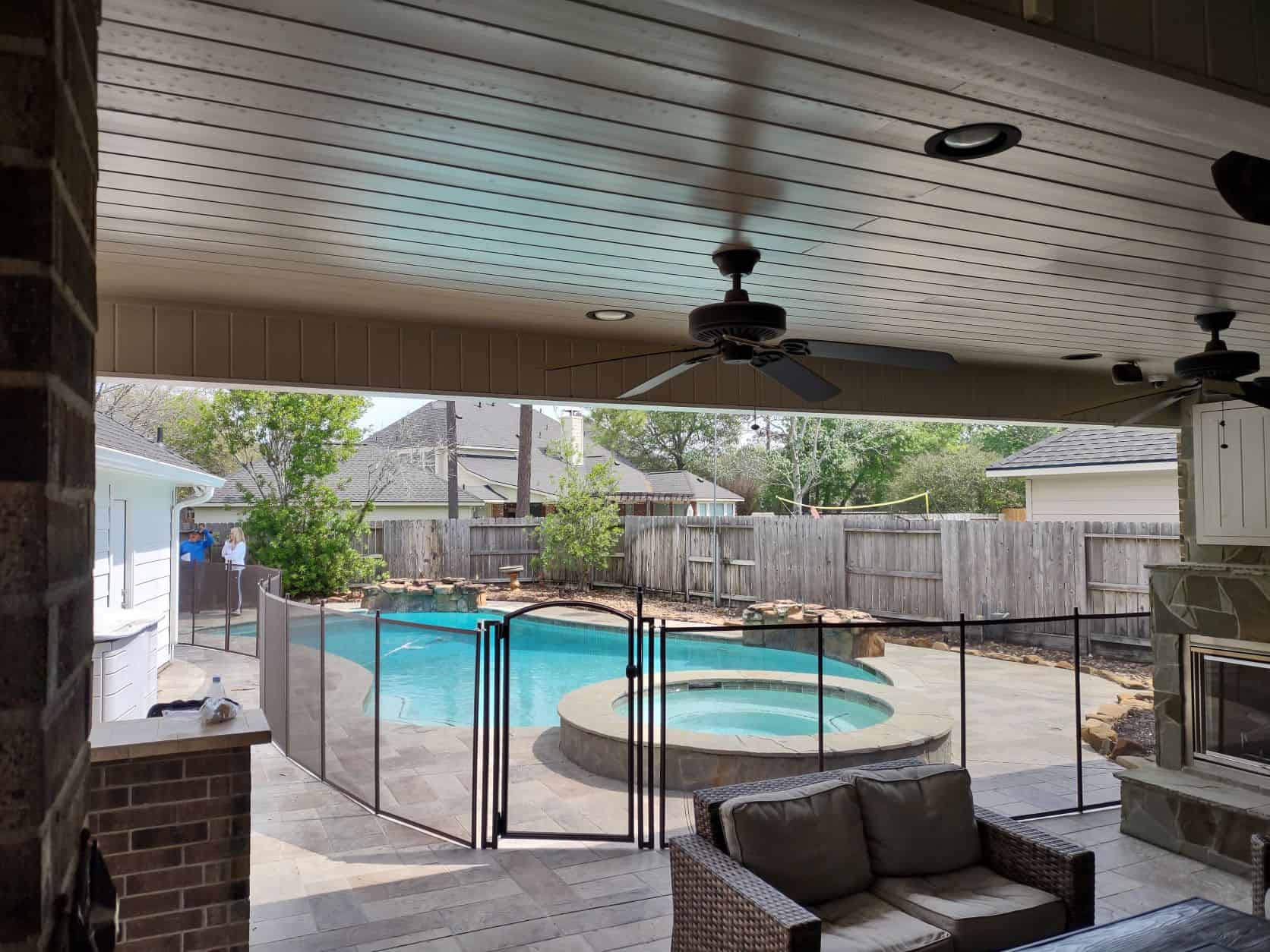
The safety of children is of paramount importance, especially when it comes to potential hazards around the house. Pools, while providing opportunities for fun and relaxation, can also pose significant risks to children's safety. To mitigate these risks, it is crucial for homeowners to install a pool fence. In this article, we will delve into the reasons why children are safer in a home with a pool fence. We will highlight the role of the swimming pool in preventing accidents and teaching safety.
Safe Pool Fences Prevent Accidental Drownings
Drowning is a leading cause of accidental deaths among children, particularly those aged 1 to 4 years old. Having a pool fence is a proactive step towards preventing such tragic incidents. A securely installed pool fence acts as a physical barrier that restricts access to the pool area. They reduce the risk of children accidentally falling into the water. It creates a separation between the pool and the surrounding living space, ensuring that children cannot enter the pool area without adult supervision. By eliminating unsupervised access, a pool fence significantly decreases the likelihood of accidental drownings.
Pool Fences Restrict Access to Non-Swimmers
Pool fences are particularly important in homes with young children or non-swimmers. Toddlers and young children are naturally curious and may be drawn to the water's allure, even if they are not capable of swimming or understanding the potential dangers.
A pool fence provides an additional layer of protection, preventing children from entering the pool area without supervision. It acts as a deterrent and a physical barrier, reducing the risk of children accidentally entering the pool and encountering dangerous situations.
Pool Fences Minimize Risk During Absence or Distraction
Parents and caregivers cannot always keep a constant eye on children, especially when engaged in other household activities or momentarily distracted. During these times, a pool fence plays a crucial role in ensuring children's safety. It provides a reliable barrier that prevents children from accessing the pool area while their caregivers are momentarily occupied. This can include answering the door, attending to another child, or performing household tasks. The pool fence acts as a safeguard during these periods of distraction or absence, minimizing the risk of accidents that can occur in mere moments of inattention.
Pool Fences are a Means of Childproofing the Pool Area
A well-designed and properly installed pool fence goes beyond simply restricting access. Pool fences also serves as a means of childproofing the pool area. It is essential to choose a fence that complies with safety standards, such as being at least four feet high and having no gaps or footholds. Children often try to exploit, climb over or squeeze through these fences.
The fence should be made of sturdy materials that are not easily scalable, such as mesh or metal bars. These precautions ensure that children cannot bypass the fence or access the pool area through any means. By childproofing the pool area with a secure fence, potential hazards are minimized, and the overall safety of children is enhanced.
Pool Fences Encourage Active Adult Supervision
While a pool fence acts as a physical barrier, it also serves as a reminder of the importance of active adult supervision. It reinforces the notion that swimming and water-related activities require close monitoring to ensure the safety of children. A pool fence prompts parents and caregivers to actively supervise children when they are in or near the pool area, promoting responsible behavior and mitigating risks. It helps create an environment where adults are more attuned to potential hazards and are motivated to provide vigilant supervision.
In Some Areas, Pool Fences Are a Compliance with Legal and Insurance Requirements
In many jurisdictions, pool fences are not only recommended but also mandated by law. Homeowners with pools are often required to comply with specific safety regulations to ensure the well-being of children. Failure to meet these requirements can lead to legal consequences and potential liability in the event of accidents.
Additionally, some insurance policies may require homeowners to have a pool fence in place as a condition for coverage. By installing a pool fence that meets legal and insurance requirements, homeowners not only prioritize the safety of children but also fulfill their obligations as responsible pool owners. Compliance with these regulations provides an added layer of protection and reassurance, ensuring that children are safer in a home with a pool fence.
Final Thoughts About Residential Pool Fences
The installation of a pool fence is a vital safety measure that significantly reduces the risk of accidents and promotes a secure environment for children. By preventing unsupervised access, restricting entry to non-swimmers, minimizing risks during moments of distraction, childproofing the pool area, encouraging active adult supervision, and complying with legal and insurance requirements, a pool fence plays a crucial role in ensuring children's safety around pools.
A pool fence serves as a physical barrier that acts as a deterrent, provides valuable time for intervention, and reinforces the importance of supervision and responsible behavior. Every homeowner with a pool should prioritize the installation of a pool fence as a fundamental step towards creating a safe and protected space for children to enjoy the benefits of swimming while mitigating the inherent risks.
Remember, investing in a pool fence is an investment in the well-being and security of children, and it should be considered an essential component of pool safety measures. If you can afford a home swimming pool, make sure you can also afford a safe pool fence!
Life Saver Of Houston is Here to Help
Are you ready to install a home swimming pool system at your home? If you are, we can help you with a really safe pool fence system. Life Saver has been known for a long time as having the best and safest pool fence systems. Call Wayne, the owner, a telephone call by dialing (832)367-2377. He can help you out with any questions that you might have. Or, you can email him.



